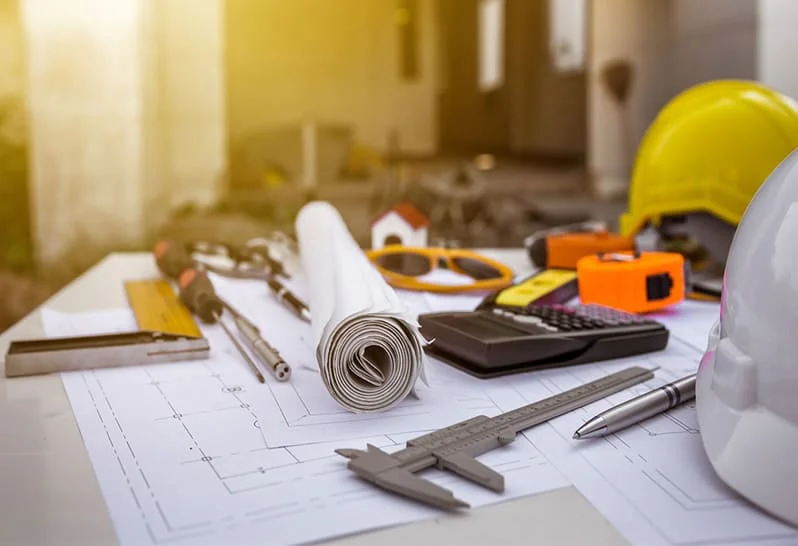
A general contractor (GC) is a key player in construction projects, whether it’s building a new home, renovating a commercial property, or handling a remodeling job. If you're considering a construction project, it’s important to understand what a general contractor does and why they are essential to your project’s success. In this article, we'll explore the role of a general contractor in detail.
A general contractor is a professional responsible for overseeing construction projects from start to finish. They are the main point of contact between you (the client) and the subcontractors or workers. The GC manages every aspect of a construction project, ensuring it runs smoothly, within budget, and on schedule.
General contractors have a wide range of duties that make them essential for construction projects. These duties include:
One of the main roles of a general contractor is managing the entire project. This includes organizing the work, coordinating subcontractors, and ensuring that the project is completed on time. They also act as the point of contact for you, the client, addressing any concerns or questions that may arise during construction.
A general contractor is responsible for hiring specialized workers (subcontractors) for various parts of the project. These may include electricians, plumbers, carpenters, and other specialists who have specific skills. The GC makes sure the right people are hired for the job and that they complete their work properly.
For most construction projects, certain permits and licenses are required by local authorities. A general contractor ensures that these permits are obtained and that the project complies with local building codes and regulations.
A general contractor creates a detailed budget for the project and ensures that all costs are kept within the specified limits. This includes materials, labor, and other expenses. If unexpected costs arise, the GC is responsible for handling them without compromising the overall project.
The general contractor is also responsible for making sure the construction work meets high-quality standards. This involves inspecting work at different stages of the project, making adjustments when necessary, and ensuring the work is up to code and satisfies the client's expectations.
Managing a construction project involves many moving parts. A general contractor streamlines the process by taking on the responsibility of coordinating everything, saving you time and effort. Instead of hiring and managing multiple subcontractors yourself, you can trust the GC to handle it all.
General contractors bring their experience to the table, offering expert guidance throughout the process. They can advise you on the best materials, designs, and construction methods for your project. This expertise ensures that the project is completed efficiently and to a high standard.
With years of experience, a general contractor can anticipate and address potential problems before they escalate. From handling safety concerns to resolving unexpected challenges, the GC is the person who takes on much of the project’s risk, ensuring that you’re not burdened with these issues.
Construction projects must adhere to strict regulations and codes. A general contractor ensures that everything is done in compliance with local laws, keeping you and your project protected from fines or legal issues.
Not all general contractors are the same. Depending on the type of construction project, you may encounter different types of GCs, including:
These contractors handle home construction projects, including new builds, renovations, or additions. If you're planning to build or remodel your house, a residential GC will manage all aspects of the project.
Commercial contractors focus on business-related construction, including office buildings, retail spaces, and warehouses. They are experienced in handling larger-scale projects and can deal with the complexities of commercial building codes and regulations.
Some general contractors specialize in certain types of construction, such as eco-friendly buildings or luxury homes. These contractors focus on specific types of projects and bring specialized knowledge to the table.
You may need a general contractor for any project that requires multiple tasks, subcontractors, and ongoing management. Some of the situations where you might hire a GC include:
Choosing the right GC is critical for the success of your project. Here are a few tips to help you find the best general contractor for your needs:
A general contractor plays a crucial role in the success of any construction project. From managing the budget and timeline to hiring subcontractors and ensuring quality, they oversee every aspect of the process. Whether you're building a new home or renovating an existing property, hiring the right general contractor can make the difference between a smooth project and a stressful one.
A reliable general contractor can be found through recommendations from friends or online reviews. It's important to interview multiple contractors and check their references and qualifications.
General contractors typically charge a percentage of the total project cost, usually between 10% to 20%, or a fixed fee depending on the size and complexity of the project.
For smaller projects, like a bathroom remodel, you may not need a full general contractor. However, if the project involves multiple trades or requires permits, a GC can be helpful.
Hiring the wrong contractor can lead to delays, budget overruns, and poor-quality work. Always check qualifications and ensure that the contractor has experience with the type of project you're planning.